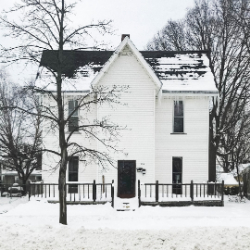![]()

Today, Tuesday, November 1, marks the beginning of the Nebraska Public Service Commission’s (PSC) cold weather rule.
From November 1-through- March 31, customers of Nebraska’s jurisdictional natural gas utilities who may be facing financial difficulties are given a little extra time to pay their bills. The cold weather rule means Black Hill Energy and NorthWestern Energy may not shut off service without allowing customers an additional 30 days to pay their bill beyond the normal due date. Qualifying low-income customers may have additional protections.
“All signs point to another year of increased heating costs,” said Commission Chair Dan Watermeier. “By encouraging natural gas suppliers and consumers to work together, the cold weather rule helps to keep the heat on during the coldest time of the year.”
Customers finding it difficult to pay natural gas bills should contact the company to arrange payment. Local public assistance agencies can also be contacted for help with natural gas bills including the Nebraska Department of Health and Human Services and the Salvation Army.
The cold weather rule was implemented in 2003 when the PSC was given regulatory authority over the state’s jurisdictional utilities. Nebraska communities served by municipally owned natural gas utilities are not subject to regulation by the PSC and are not required to comply with
the cold weather rule.

Commissioner Watermeier said, “We would encourage consumers to be proactive when it comes to winter heating bills. Information on assistance can be found by calling your natural gas utility or visiting their website.”
Consumers can take steps to lower costs by setting thermostats a little lower. Gas utilities recommend 68 degrees or lower, and to reduce thermostat settings when a home or building isunoccupied. Check gas appliance and space-heating equipment for efficient operation. Obtain a
home energy audit to identify ways to conserve energy and participate in a gas company’s yearly budget plan to spread costs throughout the year.
Other ways to conserve energy costs include, improving insulation in a home by installing storm windows and doors, attach clear plastic to the inside or outside of windows and screen doors, caulking around windows and doorframes, and covering window air conditioners.
